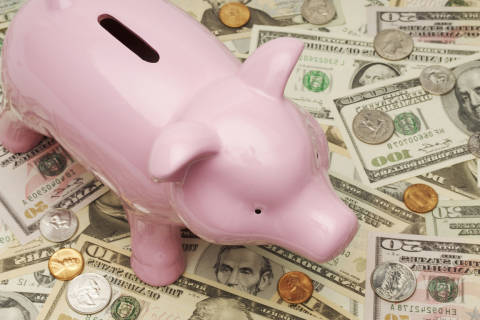NEW YORK (AP) — Best Buy, the nation’s largest consumer electronics chain, on Thursday reported another quarterly drop in sales due to Americans pulling back on purchases of appliances and consumer-electronics gadgets to focus on essentials.
But the latest period showed Best Buy’s business stabilizing, and its results topped Wall Street expectations. The retailer based in Richfield, Minnesota, lowered its sales outlook but raised its earnings view for the current fiscal year.
Best Buy’s stock jumped more than 17% Thursday.
“Overall, customers remained deal-focused and attracted to more predictable sales moments with 4th of July, Black Friday in July and the beginning of back-to-school sales events, ” Best Buy’s CEO Corie Barry told analysts during a call. She noted that comparable sales — those from digital channels and physical stores — in July were the best of the quarter.
The company posted sales growth in tablets, computing and services, more than offsetting declines in appliances, home theater and gaming.
Barry noted that major appliances and TVs continued to be very discount-driven, something that is expected to continue through the holidays. But she said that Best Buy remains targeted and thoughtful regarding where and when the retailer cut prices, balancing profitability and sales.
Consumers have been wrestling with high prices and elevated interest rates. The government reported earlier this month that hiring was much weaker than expected in July and the unemployment rate rose for a fourth straight month. Yet since then, economic reports have shown that layoffs are still low and that activity and hiring in services industries remains solid.
Shoppers are also focusing more on experiences like travel and tickets to concerts, which also have eaten into their spending on gadgets.
For Best Buy, the latest trends are a reversal from the height of the pandemic, when its sales were fueled by outsized spending from people splurging on electronics to help them work from home, or to get their children better equipped for virtual learning. Government stimulus checks also fueled spending.
To perk up sales, Best Buy is modernizing its stores to entice shoppers and focus on its paid membership services. The company has been also reducing its layers of management and reinvesting in more labor at its stores to help shoppers.
Best Buy just added dedicated trained experts in the computing departments of hundreds of its stores and plans to do the same in its home-theater and major-appliance departments. The company said more than 60% of its workers are certified in at least two categories.
It is also banking on new gadgets like personal computers enhanced with artificial intelligence from the likes of Microsoft. While expensive, they are more efficient and offer more battery life. And these new devices will result in lower prices for older models.
Earlier this month, Best Buy announced a new live-tracking feature that uses artificial intelligence to allow customers to digitally track their deliveries and installations when they purchase large items like big screen TVs, refrigerators, washers and dryers.
Best Buy reported earnings of $291 million, or $1.34 per share for the three-month period ended Aug. 3. That compares with $274 million, or $1.25 per share, in the year-go period.
Sales slipped 3% to $9.29 billion from $9.58 billion in the quarter.
Analysts were expecting $1.16 per share on sales of $9.23 billion, according to FactSet.
Comparable sales — those sales from online channels and physical stores — fell 2.3%. That was a smaller decline from the 6.1% reported in the previous quarter.
Best Buy lowered its sales outlook for the fiscal year from the previous quarter. It now expects revenue to range from $41.3 billion to $41.9 billion, which compares to prior guidance of $41.3 billion to $42.6 billion. It projects comparable sales to decline from 1.5% to 3%. In May, it expected the range to be anywhere from unchanged to down 3%.
The company upgraded its earnings outlook for the year to a range of $6.10 to $6.35 per share. That compares with prior guidance of $5.75 per share to $6.20 per share.
Analysts were expecting $6.07 per share on sales of $41.75 billion, according to FactSet for the year.
Copyright © 2024 The Associated Press. All rights reserved. This material may not be published, broadcast, written or redistributed.







